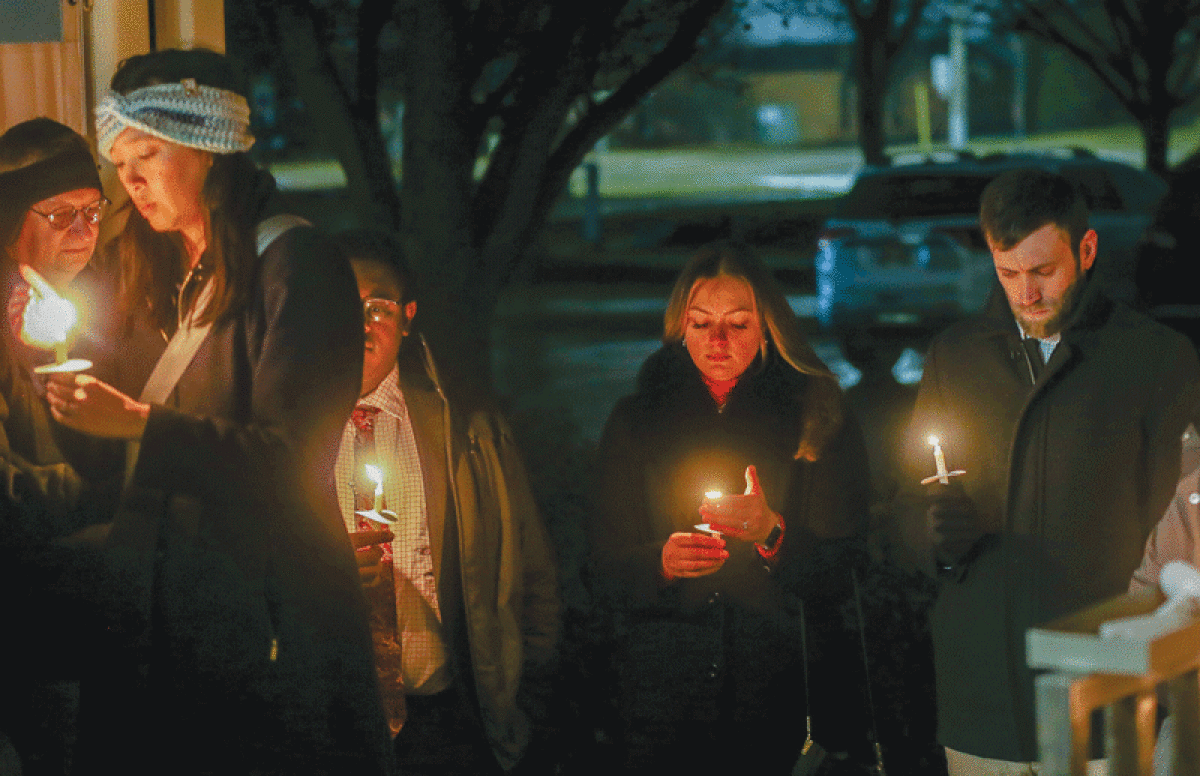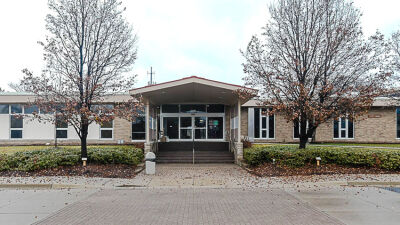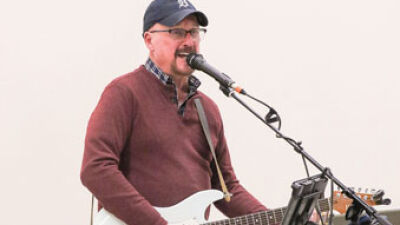MADISON HEIGHTS — The city of Madison Heights recently held a candlelight peace vigil in honor of Martin Luther King Jr. Day. The event, held Jan. 16 at the gazebo in front of City Hall, was an opportunity to reflect on MLK’s legacy. It was also a sign of the city’s ongoing work to break down barriers in the community, and to build bridges between neighbors.
Prior to the event, Madison Heights City Councilman Quinn Wright — the city’s first Black councilman — shared his thoughts on the vigil and other efforts by the Human Relations and Equity Commission, the group behind the event.
Wright noted that the idea for the vigil came about early in the year during a planning session by the HREC. He said that the polarized nature of American politics has put some distance between different groups of people — something he also sees in Madison Heights.
“This past year, folks have had some personal struggles they’ve had to overcome — things like division with elections, and other outside forces that have been driving a wedge between neighbors,” Wright said. “So we thought, why not take MLK Day as an opportunity to focus on coming together, and to acknowledge that while some people are struggling with these feelings, and there’s some grief, there’s also an opportunity to reconcile, and to have hope for what’s to come in 2023.”
When asked about the legacy of MLK, Wright described it as an ongoing learning experience. He said it’s about learning to be aware of our own biases, and to open our minds to the varied life circumstances of others.
“The thing I think about most is that (MLK’s legacy) is a living thing, and therefore it needs to be taken care of,” Wright said. “I think we have many people who acknowledge it’s important to see everyone as equal, but at the same time, they don’t appreciate the necessity of inclusion, and the importance of bringing in other people.
“It’s one thing to say, ‘I see everyone as equals,’ but you have to remember that’s not the end of the sentence; it’s a pause or break in the sentence,” he said. “And you continue it by saying, ‘I see you entirely. I see the parts of your life that are different than mine, and that impact you differently. And I see the layers that make you you.’ Then you can take the next step, which is to say, ‘Now I’m taking time to make room for you.’
“I think that’s where MLK’s legacy lives on,” he concluded. “It’s not only a matter of people acknowledging inequity exists, but also being aware that we need to do our best to be inclusive. … Life is a kaleidoscope of different angles, and everyone sees it from their frame. We have to have the humility to recognize that there are people who have even more struggles than ourselves.”
He said that few want to acknowledge their own prejudices, if they’re even aware of them, because doing so makes them feel like a bad person. This creates resistance to the idea that maybe our biases contribute to inequity in society, he said. But he noted it’s important to remember that prejudices can be overcome if we acknowledge them. And prejudices exist in everyone, he said, since everyone’s point of view starts out limited by the life they’ve led.
“We need to appreciate that being prejudiced, being racist, it’s an action — it’s something you can do one day, and not do the next,” he said. “It’s a behavior, like jumping or running. We have to accept that, and not put it into a category of you are racist or you aren’t racist.”
Learning from the experiences of others is key, he said. Martin Luther King Jr. Day is one opportunity to reflect on the circumstances of others. So, too, is the city’s Juneteenth celebration — a summer event held in partnership between the HREC and Madison Heights Citizens United, commemorating the end of slavery in the U.S., and meditating on how slavery’s effects have rippled across generations.
The HREC has been working on other initiatives, as well. The group is currently planning a community cookbook that will solicit recipes from residents all over the city. Everyone will be welcome to contribute, because as Wright said, “Nothing brings people together like food.” The HREC has also been holding book club meetings themed around heritage months, where the goal is to develop a deeper appreciation for things like Black history or women’s history by discussing personal stories about those things.
Roslyn Grafstein, the mayor of Madison Heights, said she appreciates the group’s work bringing the community closer together.
“Before I was mayor, my entire life, I’ve always wanted everyone to feel included, and I think it’s important that everyone — regardless of race, religion, culture or creed — do feel included,” Grafstein said. “You can’t look at a person and know their history or what they’re going through now based solely on how they look. Everybody, regardless of their appearance or background, is unique. It’s important that we honor (MLK) and his legacy, and that we honor the good works that he did, and continue those works.”
 Publication select ▼
Publication select ▼



























